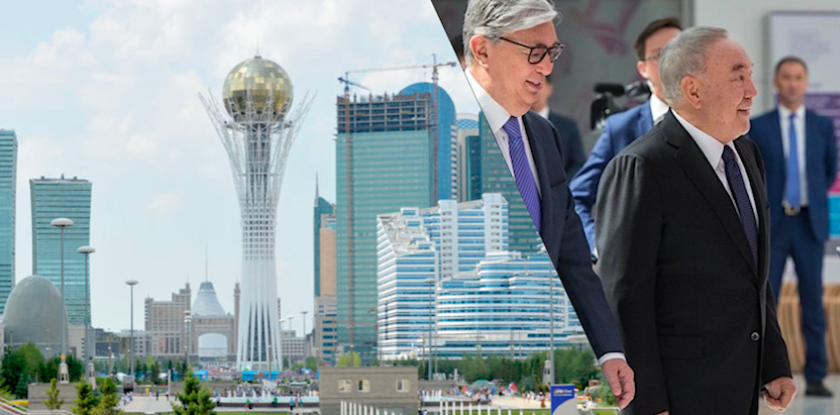June 22, 2019 marked the thirtieth anniversary of Nursultan Nazarbayev’s election as the First Secretary of the Kazakh SSR’s Communist Party’s Central Committee (he was serving as the Head of the regional Ministers Council at the time). It was then when Nazarbayev, de-facto, took charge of Kazakhstan. De-jure, he took over the leadership of the republic (at the time, still a member of the USSR) on April 24, 1990 when, on a single bidder basis, he was elected the President of the Kazakh SSR at the Supreme Soviet meeting.
On December 1, 1991, also on a single bidder basis, Nazarbayev was elected the leader of the sovereign and independent Republic of Kazakhstan. And even though Nursultan Abishevich announced his resignation from the presidential post on March 19, 2019, he has parted only with the job title but not with the power. Thus, the last thirty years of the Kazakh history are directly and inextricably lined to the name of Nursultan Nazarbayev who has already made it into the country’s history. The only question is — in what capacity?
As the founder and the first ruler of a sovereign and independent country, the Leader of the Nation, the person that took over the leadership of Kazakhstan’s people including the native Kazakhs during one of its history’s most difficult times and guided his co-citizens through the turbulent events of the end of the 20th — the beginning of the 21st century? Or as an autocrat who has seized the power in the country, systemically and systematically abused his authorities as the head of the state, appropriated a significant part of the public properties, made his nearest and dearest into dollar billionaires while foredooming his co-citizens to precarious existence in a country filled with hydrocarbons and other natural resources?
Unfortunately, no one will be able to give an objective and evenhanded answer to this question for quite some time. About fifty years is required for the events of 1989 — 2019 to become the dim and distant past, for the contemporaries and participants of these events to pass on, for the emotions to cool off, for political games and preferences to stop influencing the minds of the scientists, economists, historians, political experts, sociologists — all those engaged in the analysis, assessment, summing-up of the so-called «Nazarbayev time».
This does not at all mean that the Kazakhs do not have the right to express their opinion here and now making their own judgement about the past. Muratbek Ketebayev has analyzed the key takeaways of the Nazarbayevschina — read his special report in the Projects column (click on the link below).
TRANSIT.kz

*The suffix -schina in Russian has a negative connotation and is similar in function to the English -ism. In this article, Nazarbayevschina is a used as a derogatory term criticizing the realia of the time of Nazarbayev’s rule.




